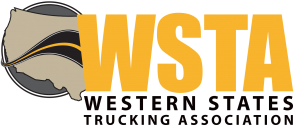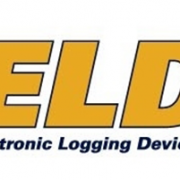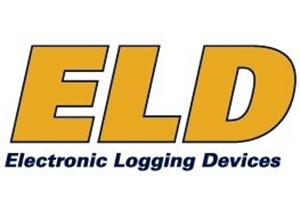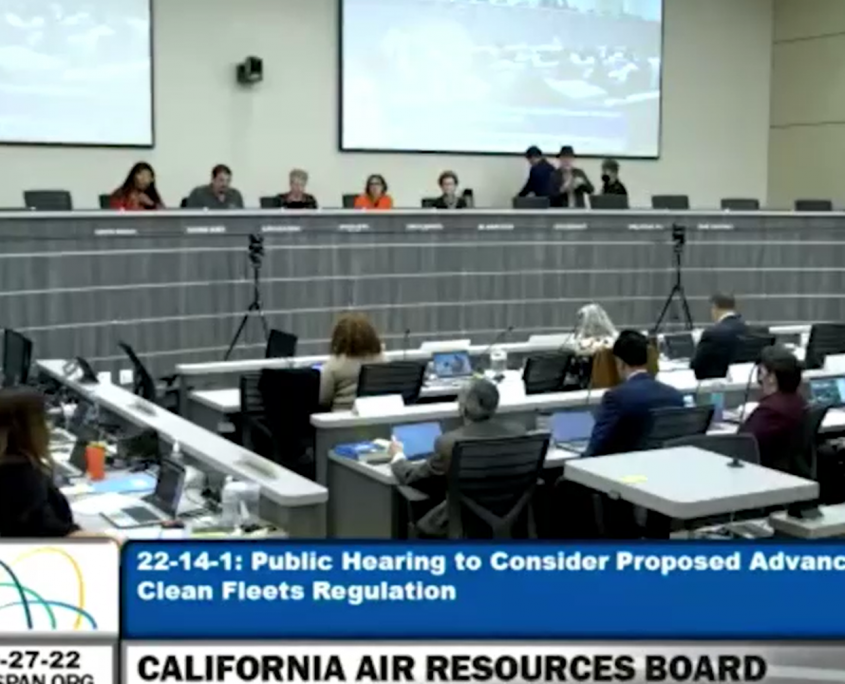- VETOED: AB 376 (Villapudua), the WSTA-supported bill that would make state financial aid available to truck driving school students, was unfortunately vetoed, with the following veto message:
To the Members of the California State Assembly: I am returning Assembly Bill 376 without my signature. This bill would establish a pilot program available until January 1, 2028, for the purpose of expanding Cal Grant C eligibility to students participating in entry level truck driving programs that meet specific requirements. This bill also requires the California Student Aid Commission, in consultation with the Bureau for Private Postsecondary Education, to submit a report to the Legislature, by April l, 2027, about the pilot program. I thank the author for his commitment to address the driver shortage in the trucking industry. However, this bill results in significant General Fund cost pressures and staff workload that are not currently part of the state’s fiscal plan and are more appropriately addressed in the annual budget process. In partnership with the Legislature, we enacte1d a budget that closed a shortfall of more than $30 billion through balanced solutions that avoided deep program cuts and protected education, health care, climate, public safety, and social service programs that are relied on by millions of Californians. This year, however, the Legislature sent me bills outside of this budget process that, if all enacted, would add nearly $19 billion of unaccounted costs in the budget, of which $11 billion would be ongoing. With our state facing continuing economic risk and revenue uncertainty, it is important to remain disciplined when considering bills with significant fiscal implications, such as this measure. For this reason, I cannot sign this bill. Sincerely, Gavin Newsom
- SIGNED: SB 253 (Wiener), the WSTA-opposed bill that will enact onerous emissions tracking requirements on businesses. Although, he also included the following signature message, which indicates that a clean-up bill will be necessary next year:
To the Members of the California State Senate: I am signing Senate Bill 253 which would require, among other things, the California Air resources Board (CARB), by January 1, 2025, to develop and adopt regulations requiring businesses with total annual revenues over $1 billion and operating in California to disclose their greenhouse gas emissions to an emissions reporting organization. This important policy, once again, demonstrates California’s continued leadership with bold responses to the climate crisis, turning information transparency into climate action. However, the implementation deadlines in this bill are likely infeasible, and the reporting protocol specified could result in inconsistent reporting across businesses subject to the measure. I am directing my Administration to work with the bill’s author and the Legislature next year to address these issues. Additionally, I am concerned about the overall financial impact of this bill on businesses, so I am instructing CARB to closely monitor the cost impact as it implements this new bill and to make recommendations to streamline the program. I look forward to working with the Legislature on these modifications to achieve this bill’s goals of “full transparency and consistency”
- SIGNED: AB 251 (Ward), which will require the California Transportation Commission (CTC) to convene a task force to study the relationship between vehicle weight and injuries to vulnerable road users, such as pedestrians and cyclists, and degradation to roads, and to study the costs and benefits of imposing a passenger vehicle weight fee to include consideration of vehicle weight. The bill would require the CTC, by no later than January 1, 2026, to prepare and submit a report to the Legislature.
- SIGNED: AB 314 (Patterson), which extends and expands modifications made to the sales and use tax exemption for trailers and semitrailers used in interstate commerce. Specifically, the bill extends the sunset date on AB 321’s (from 2019) expansion to the specific exemption for vehicles used in interstate commerce from January 1, 2024, to January 1, 2029 and adds used trailers or semitrailers into the exemption.
- SIGNED: AB 844 (Gipson), which requires the Department of Insurance to collect specified data on the availability and affordability of insurance for heavy-duty trucks and truck fleets that utilize advanced fuels.
- VETOED: AB 1614 (Gabriel), which would have required the Energy Resources Conservation and Development Commission (CEC), in coordination with CARB and the Governor’s Office of Business and Economic Development (GO-Biz), and in consultation with local air districts and local governments to conduct a study on the transitioning of retail gasoline fueling stations from providing gasoline to providing alternative fuels by January 1, 2027, was vetoed with the following veto message:
To the Members of the California State Assembly: I am returning Assembly Bill 1614 without my signature. This bill would require the California Energy Commission (CEC), in consultation with the Governor’s Office of Business and Economic Development, to conduct a study on the statewide transition of fuel stations from gasoline to alternative fuels. This bill will result in additional costs to the General Fund and the CEC’s primary operating fund, which is currently facing an ongoing structural deficit. This bill exacerbates the CEC’s operating funds structural imbalance. Additionally, many provisions of this bill are duplicative of existing law, which requires the CEC, in consultation with various state entities, to prepare a transportation fuels transition plan by December 31, 2024. In partnership with the Legislature, we enacted a budget that closed a shortfall of more than $30 billion through balanced solutions that avoided deep program cuts and protected education, health care, climate, public safety, and social service programs that are relied on by millions of Californians. This year, however, the Legislature sent me bills outside of this budget process that, if all enacted, would add nearly $19 billion of unaccounted costs in the budget, of which $11 billion would be ongoing. With our state facing continuing economic risk and revenue uncertainty, it is important to remain disciplined when considering bills with significant fiscal implications, such as this measure. With our state facing continuing economic risk and revenue uncertainty, it is important to remain disciplined when considering bills with significant fiscal implications, such as this measure. With our state facing continuing economic risk and revenue uncertainty, it is important to remain disciplined when considering bills with significant fiscal implications, such as this measure. For these reasons, I cannot sign this bill. Sincerely, Gavin Newsom
- SIGNED: AB 1594 (Garcia), which requires any state regulation that seeks to require, or otherwise compel, the procurement of medium- and heavy-duty zero-emission vehicles to allow public agency utilities to purchase end of life replacements, without regard to the model year of the vehicle being replaced.
Governor Newsom also took recent action on the following CalChamber “Job Killer” bills:
- VETOED: AB 524 (Wicks), which would have expanded the protected characteristics under the Fair Employment and Housing Act’s anti-discrimination provisions in employment to include family caregiver status, was vetoed with the following veto message:
To the Members of the California State Assembly: I am returning Assembly Bill 524 without my signature. This bill would add “family caregiver status” as a characteristic protected under the Fair Employment and Housing Act ‘s employment provisions. During my tenure as Governor I have consistently advanced policies to help parents and families, including expanding paid family leave and increasing the state’s investment in childcare. While I appreciate the intent of this bill, I am concerned about the large burden it will place on employers, particularly small businesses, especially given the ambiguous nature of the language. Although the bill does not require employers to provide “special accommodations” based on “family caregiver status,” it is not clear what types of acts would constitute unlawful discrimination and what types of acts would be lawful denials of “special accommodations.” Given this ambiguity, this bill would be difficult to implement and lead to costly litigation for employers in California. For these reasons, I cannot sign this bill. Sincerely, Gavin Newsom
- SIGNED: AB 647 (Holden), which significantly expands statute related to successor grocery employers, including disrupting the ability for independent small stores to join together and creating a significant new private right of action.
- SIGNED: SB 616 (Gonzalez), which imposes new costs and leave requirements on employers of all sizes, by nearly doubling existing sick leave mandate, which is in addition to all other enacted leave mandates that small employers throughout the state are already struggling with to implement and comply.
- VETOED: SB 627 (Smallwood-Cuevas), which would have imposed an onerous and stringent process to hire employees based on seniority alone for nearly every industry, including hospitals, retail, restaurants and movie theaters, which will delay hiring and eliminates contracts for at-will employment, was vetoed with the following veto message:
To the Members of the California State Senate: I am returning Senate Bill 627 without my signature. This bill would require certain chain employers to provide workers and their exclusive representative, if any, with a displacement notice at least 60 days before an expected date of closure. Additionally, it would require a chain employer to maintain a preferential transfer list of eligible laid-off employees and make job offers based on length of service for one year after the closure date and provide an opportunity to transfer to another chain location within 25 miles, as positions become available. The new notice requirements, transfer rights, processes and criteria, and associated penalties established by this bill would impose significant burdens on employers. The arbitrary 25-mile radius for transfers does not take into account substantial regional differences among commute times. In addition, this bill applies to an overly broad list of establishments and creates vague processes and criteria, which will lead to implementation and enforcement challenges. For these reasons, I cannot sign this bill. Sincerely, Gavin Newsom
- VETOED: SB 799 (Portantino), which would have allowed striking workers to claim unemployment insurance benefits when they choose to strike, was vetoed with the following veto message:
To the Members of the California State Senate: I am returning Senate Bill 799 without my signature. This bill allows individuals who left work due to a trade dispute to become eligible for Unemployment Insurance (UI) benefits. The bill also codifies case law that employees who left work due to a lockout by their employer, even if it was in anticipation of a trade dispute, are eligible for UI benefits. California employers fund UI benefits through contributions to the state’s UI Trust Fund on behalf of each employee. The UI financing structure has not been updated since 1984, which has made the UI Trust Fund vulnerable to insolvency. Any expansion of eligibility for UI benefits could increase California’s outstanding federal UI debt projected to be nearly $20 billion by the end of the year and could jeopardize California’s Benefit Cost Ratio add-on waiver application, significantly increasing taxes on employers. Furthermore, the state is responsible for the interest payments on the federal UI loan and to date has paid $362.7 million in interest with another $302 million due this month. Now is not the time to increase costs or incur this sizable debt. I have deep appreciation and respect for workers who fight for their rights and come together in collective action. I look forward to building on the progress we have made over the past five years to improve conditions for all workers in California. For these reasons, I cannot sign this bill. Sincerely, Gavin Newsom
- Signed SB 244 (Eggman) – the Right to Repair Act – which requires manufacturers of an electronic or appliance product with a wholesale price to the retailer of not less than $50 to make available, on fair and reasonable terms, sufficient service documentation and prescribed functional parts and tools to owners of the product, service and repair facilities, and service dealers for specified timeframes. This bill provides that a city, a county, a city and county, or the state may bring an action in superior court to impose civil liability on a person or entity that knowingly, or reasonably should have known that it violated these provisions.
- VETOED AB 316 (Aguiar-Curry) – Teamsters bill to prohibit autonomous heavy-duty trucks without a human driver, with the following veto message:
I am returning Assembly Bill 316 without my signature. Among its provisions, this bill would ban driverless testing and operations of heavy-duty autonomous vehicles. Assembly Bill 316 is unnecessary for the regulation and oversight of heavy-duty autonomous vehicle technology in California, as existing law provides sufficient authority to create the appropriate regulatory framework. In 2012, the California Legislature provided the Department of Motor Vehicles (DMV) with the authority to regulate the testing and deployment of autonomous vehicles on public roads in California. As part of its oversight and regulatory responsibilities, DMV consults with the California Highway Patrol, the National Highway Traffic Safety Administration, and others with relevant expertise to determine the regulations necessary for the safe operation of autonomous vehicles on public roads. DMV continuously monitors the testing and operations of autonomous vehicles on California roads and has the authority to suspend or revoke permits as necessary to protect the public’s safety. Autonomous vehicle technology is evolving, and DMV remains committed to keeping our rules up to date to reflect its continued development in California. DMV held public workshops with interested stakeholders earlier this year to inform the development of future rulemakings for both light-duty and heavy-duty autonomous vehicles. This rulemaking will be a transparent, public process where subject matter experts and other stakeholders will have the opportunity to shape the regulations related to the safe operations of autonomous vehicles in California. The draft regulations are expected to be released for public comment in the coming months.
In addition to safety, my Administration has long been concerned with the impact of technology on the future of work – so much so that in 2019 we convened, with participation from a variety of organized labor leaders including the Teamsters, UFCW, and SEIU, a robust Future of Work Task Force. That effort led to the publication of a report that guides our work on issues of emerging technology and its impacts on California’s workforce. But our efforts don’t end there. I am committed to incentivizing career pathways and training for the necessary workforce specifically associated with this technology. As such, I am directing the Labor and Workforce Development Agency to lead a stakeholder process next year to review and develop recommendations to mitigate the potential employment impact of testing and deployment of autonomous heavy-duty vehicles. Considering the longstanding commitment of my Administration to addressing the present and future challenges for work and workers in California, and the existing regulatory framework that presently and sufficiently governs this particular technology, this bill is not needed at this time. For these reasons, I cannot sign this bill. My Administration remains open to working with the author, sponsors, and other stakeholders on the right approach to safely test and deploy this evolving technology in California, while also addressing and mitigating any potential impacts to jobs.



 The Hearing: I was one of over 200 speakers that addressed the proposal. Several dozen fleet owners and industry associations, including WSTA’s Joe Rajkovacz and legal counsel, pointed to the voluminous legal, economic, environmental and infrastructure-related consequences that mandating 500,000 electric or hydrogen trucks would have on the supply chain. Unfortunately, proponents were well organized (as is typical) with well over 150 speakers representing like-minded states, environmental groups and organized labor. They all pushed the Board to forge head faster than proposed by the staff.
The Hearing: I was one of over 200 speakers that addressed the proposal. Several dozen fleet owners and industry associations, including WSTA’s Joe Rajkovacz and legal counsel, pointed to the voluminous legal, economic, environmental and infrastructure-related consequences that mandating 500,000 electric or hydrogen trucks would have on the supply chain. Unfortunately, proponents were well organized (as is typical) with well over 150 speakers representing like-minded states, environmental groups and organized labor. They all pushed the Board to forge head faster than proposed by the staff.

